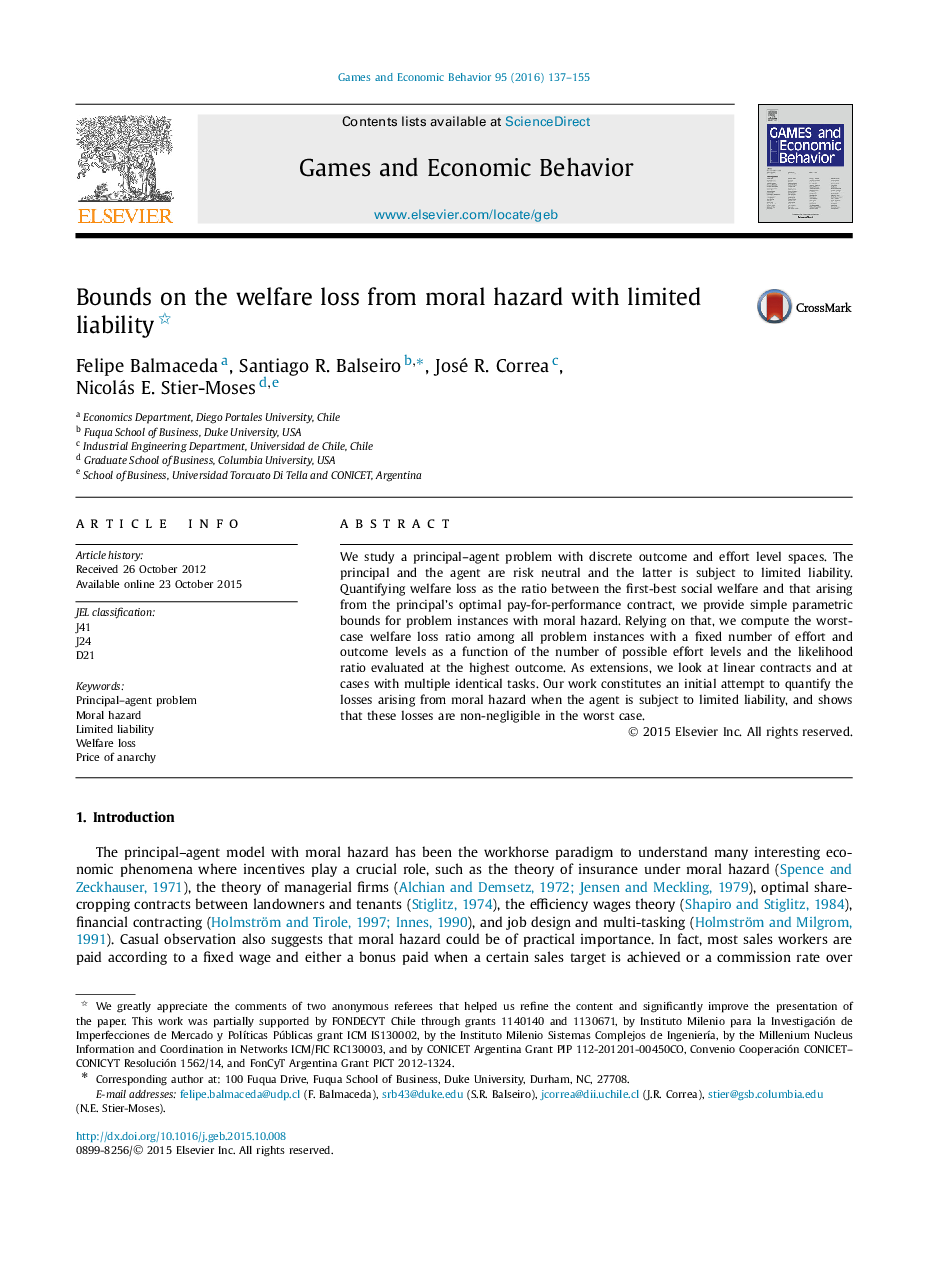| Article ID | Journal | Published Year | Pages | File Type |
|---|---|---|---|---|
| 5071537 | Games and Economic Behavior | 2016 | 19 Pages |
Abstract
We study a principal-agent problem with discrete outcome and effort level spaces. The principal and the agent are risk neutral and the latter is subject to limited liability. Quantifying welfare loss as the ratio between the first-best social welfare and that arising from the principal's optimal pay-for-performance contract, we provide simple parametric bounds for problem instances with moral hazard. Relying on that, we compute the worst-case welfare loss ratio among all problem instances with a fixed number of effort and outcome levels as a function of the number of possible effort levels and the likelihood ratio evaluated at the highest outcome. As extensions, we look at linear contracts and at cases with multiple identical tasks. Our work constitutes an initial attempt to quantify the losses arising from moral hazard when the agent is subject to limited liability, and shows that these losses are non-negligible in the worst case.
Related Topics
Social Sciences and Humanities
Economics, Econometrics and Finance
Economics and Econometrics
Authors
Felipe Balmaceda, Santiago R. Balseiro, José R. Correa, Nicolás E. Stier-Moses,
